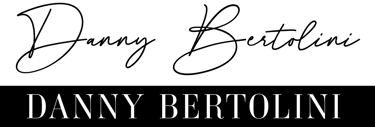How to Choose the Right Mortgage for You: Tips from Danny Bertolini
In this blog, I’ll walk you through the key factors to consider when choosing a mortgage. These tips will help you make an educated choice and feel confident in your home financing decisions.
11/28/20245 min read


Choosing the right mortgage is one of the most important financial decisions you'll make. Whether you’re a first-time homebuyer or looking to refinance, selecting the right mortgage can set the tone for your financial future. Danny Bertolini here, and I’ve spent over a decade working in the mortgage industry. If there’s one thing I’ve learned, it’s that the right mortgage isn’t just about the lowest interest rate—it’s about making an informed decision that aligns with your goals.
In this blog, I’ll walk you through the key factors to consider when choosing a mortgage. These tips will help you make an educated choice and feel confident in your home financing decisions.
How to Choose the Right Mortgage for You
1. Understand Your Mortgage Options
The mortgage market offers several options, and each type of loan comes with its own set of benefits and challenges. As a mortgage professional, I always start by helping clients understand these options so they can make an informed choice.
Fixed-Rate Mortgages:
The most common mortgage type, fixed-rate loans offer the stability of a constant interest rate throughout the life of the loan. If you plan to stay in your home long-term, a fixed-rate mortgage provides predictability and peace of mind.Adjustable-Rate Mortgages (ARMs):
If you’re planning on staying in your home for only a few years, an ARM might be a better option. ARMs typically offer lower initial rates, but they can adjust upward after a period of time. This is great for short-term homeowners, but it’s important to understand the potential risks if rates rise.FHA Loans:
If you're a first-time homebuyer or have less-than-perfect credit, FHA loans are a great option. These government-backed loans allow for lower down payments and more lenient credit requirements.VA Loans:
Veterans and active-duty military members have access to VA loans, which typically require no down payment and offer competitive interest rates. If you qualify, a VA loan could be a fantastic way to purchase your home with fewer financial barriers.Conventional Loans:
Conventional loans are not insured by the government but are often the best option for borrowers with strong credit and the ability to make a larger down payment. These loans tend to offer lower rates for those with good financial profiles.
When choosing a mortgage, it’s essential to evaluate which type best fits your long-term goals and current financial situation. Take the time to understand each option—this is a key step to making the right decision.
2. Take a Close Look at Your Finances
Your personal finances are the backbone of your mortgage decision. A mortgage that works for one person might not be right for someone else, so it’s crucial to understand how much you can afford and what your long-term budget looks like.
Down Payment:
The more you put down upfront, the lower your monthly payments will be. Ideally, a 20% down payment can help you avoid paying for private mortgage insurance (PMI). However, many programs, like FHA loans, allow for smaller down payments if you don’t have 20% to spare.Credit Score:
Your credit score plays a major role in determining your mortgage rate. Generally, the higher your credit score, the better the rate you’ll receive. If your credit score is below 700, you may want to consider improving it before applying for a mortgage. Small adjustments, like paying off high-interest credit cards, can make a significant difference.Debt-to-Income Ratio (DTI):
Your DTI ratio is another key factor. Lenders use this to assess how much of your monthly income is going toward paying off debt. A lower DTI ratio makes you more attractive to lenders and may help you secure a better rate.
When assessing your finances, make sure you’re accounting for property taxes, homeowners insurance, and maintenance costs. Understanding the full financial picture will help you choose a mortgage that fits comfortably within your budget.
3. Consider the Loan Term
The length of your loan will impact your monthly payment and the total interest you’ll pay over time. The two most common mortgage terms are:
30-Year Fixed Mortgage:
This is the most popular mortgage term due to its lower monthly payments. However, while your payments are lower, you’ll end up paying more in interest over the life of the loan. A 30-year term is ideal for homeowners who want predictability and can afford the longer repayment schedule.15-Year Fixed Mortgage:
If you’re focused on paying off your mortgage faster and saving on interest, a 15-year mortgage may be a better option. Though your monthly payments will be higher, you’ll pay off the loan more quickly and save on overall interest costs.
As Danny Bertolini, I always encourage clients to consider their long-term financial goals when selecting a loan term. If you’re comfortable with higher monthly payments and want to pay off your home faster, a 15-year loan might be the right fit. If you need lower monthly payments for flexibility, a 30-year term may be the better option.
4. Evaluate Mortgage Rates and Fees
Mortgage rates can fluctuate, so it’s crucial to understand how different rates will impact your payments and overall costs. Even a slight difference in rates can make a big difference in your monthly payments and long-term savings.
Fixed vs. Adjustable Rates:
While fixed-rate mortgages offer long-term stability, ARMs may provide lower initial rates that can change over time. Consider how long you plan to stay in your home and whether you can tolerate potential rate hikes in the future.Lender Fees and Closing Costs:
Lender fees, origination fees, and closing costs can add up quickly. When comparing mortgage offers, make sure you factor in all the associated costs, not just the interest rate. These fees can significantly impact the total cost of the mortgage.Points:
Some lenders offer points to help reduce the mortgage rate in exchange for an upfront fee. If you plan to stay in the home for a long period, paying points might be a worthwhile investment, as it can lower your monthly payments and interest costs over time.
Always consider both the rate and the total cost of the mortgage when making your decision. A slightly higher rate might be worth it if the overall costs are lower in the long run.
5. Think About Your Future Plans
The right mortgage for you depends not only on your current situation but also on your future plans. Are you planning to stay in your home long-term, or do you expect to sell or refinance in the next few years?
Short-Term vs. Long-Term:
If you plan to move in a few years, an adjustable-rate mortgage (ARM) might offer lower initial payments. However, if you plan to stay in your home for decades, a fixed-rate mortgage offers long-term stability and predictability.Refinancing Potential:
If you anticipate refinancing your home in the future, consider how your current mortgage will impact that process. Choosing a mortgage with low fees and good terms can make refinancing easier and more cost-effective down the line.
Make an Informed Decision with Danny Bertolini’s Expertise
Choosing the right mortgage can be overwhelming, but with the right knowledge and guidance, it becomes a manageable and empowering decision. By understanding the different types of loans, evaluating your financial situation, and considering your long-term goals, you can make the best choice for your financial future.
As Danny Bertolini, I’ve dedicated my career to helping clients find the mortgage solutions that work for them. If you’re ready to explore your options or need expert guidance on navigating the mortgage process, I’m here to help.
Hello, I’m Danny Bertolini, Vice President at Meadowbrook Financial Mortgage Bankers Corp.
Useful Links
Subscribe to our newsletter
© 2025 Danny Bertolini. All Rights Reserved. | Meadowbrook Financial Mortgage Bankers Corp. | NMLS #167666
